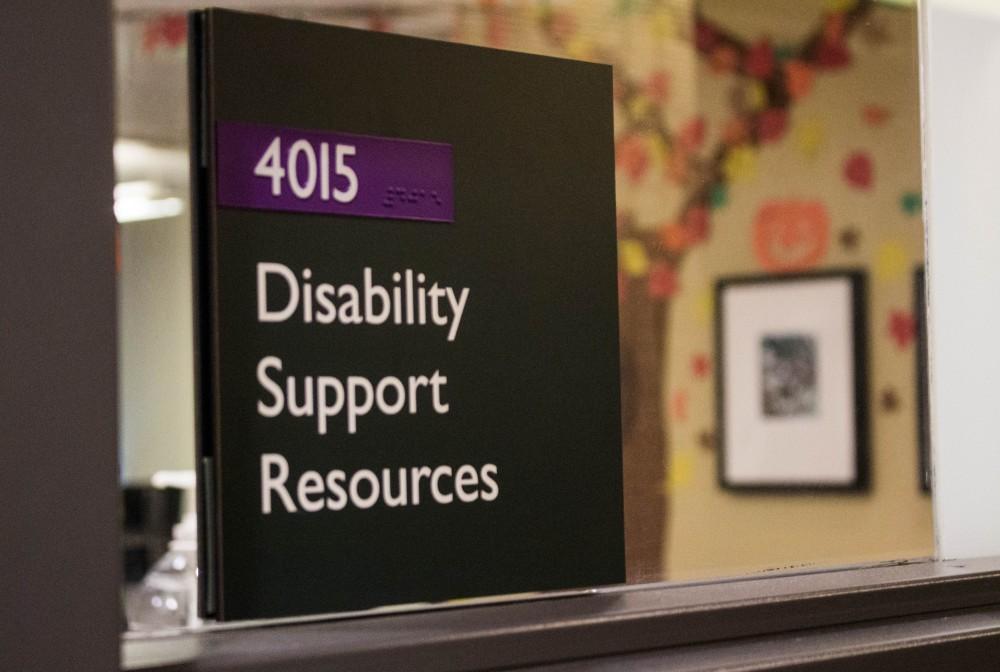Campus Links pairs autistic students with mentors

GVL/Mackenzie Bush – The Disability Support Resources office pictured on Wednesday, Oct. 26, 2016.
Oct 27, 2016
With a population that’s constantly growing, Grand Valley State University is continually adding a variety of new and different students to its roster. Each student on campus requires different types of help and resources depending on their needs. GVSU’s Disability Support Resources is one of many facets that can help students who have specific needs.
The DSR works to provide both support and services that make the learning environment easier for those with disabilities. The programs offered by the DSR work with students with a wide range of disabilities and involve options such as learning specialists, shuttle service and test accommodations.
Recently, GVSU’s DSR was highlighted as one of 10 universities that has a program specifically for students dealing with autism, according to Friendship Circle, a nonprofit aimed at helping those with disabilities. The program known as Campus Links pairs students diagnosed with autism with a mentor to help them adjust to college life.
Started in 2012, Campus Links stands out from other universities’ programs because mentors work with students outside of the classroom, while many schools focus on academics. The program consists of two tiers. The first tier, known as Campus Links Red, involves residential support in which a mentor and mentee live in the same on-campus housing.
“Most campuses only provide resources for those things that are related to academics and things in the classroom,” said Kathleen VanderVeen, assistant vice president for equity, planning and compliance and the Americans with Disabilities Act officer via email. “Grand Valley took a bold step and recognized that our students on the spectrum were struggling outside of the classroom.”
This component to GVSU’s work with autistic students is one of the defining characteristics in the program. However, the program also includes a second tier that allows for the same mentoring without the commitment of living on campus.
“Students on the spectrum sometimes have trouble navigating the social aspect of college,” VanderVeen said. “So, we created a peer-to-peer residential mentoring program to help outside the classroom. Students also meet regularly with a DSR adviser and attend workshops that help with skill-building.”
One of the main focuses of Campus Links is both retaining students and helping them to reach graduation, VanderVeen said.
“We are also striving to instill skills that will foster independence and employment,” she said.
Some of the success of these ventures is shown through student participants who have taken study abroad trips, a feat that seems nearly impossible for most autistic students before entering the mentoring program.
“The real success is the students themselves. Grand Valley created the opportunity, but the student mentors and mentees are making it happen,” VanderVeen said.























